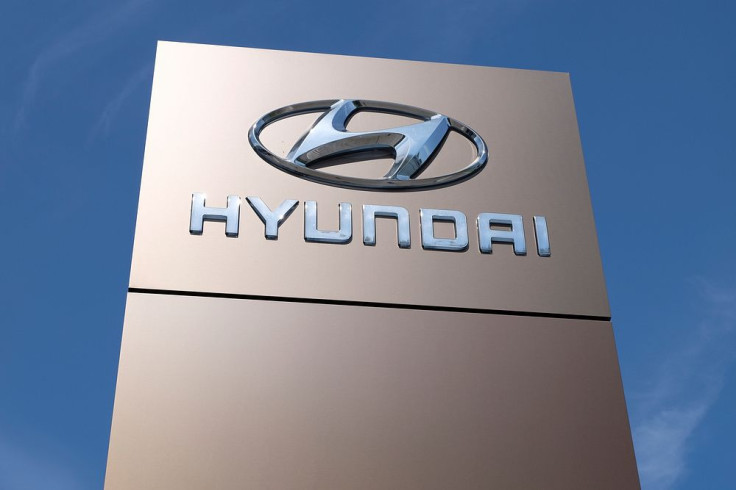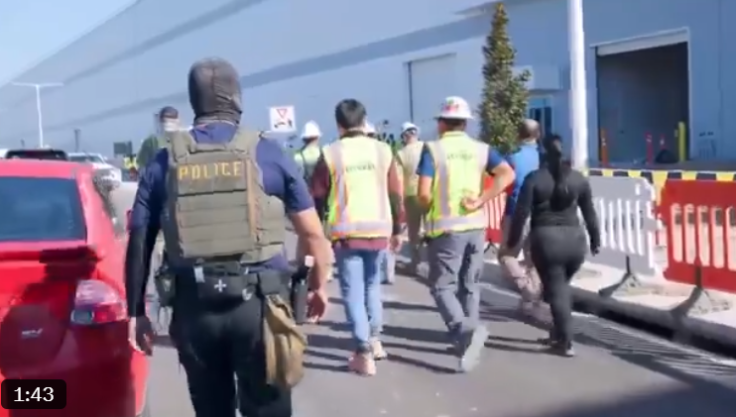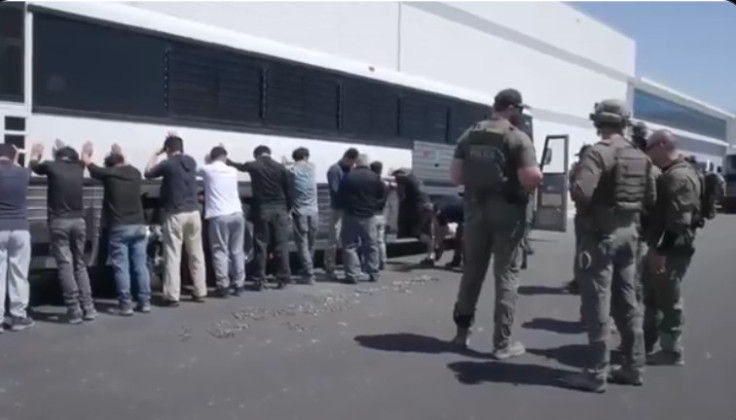Shock U-Turn: 300 South Koreans Detained at Hyundai Plant Suddenly Allowed to Stay in US — Only One Accepts
Following a mass immigration raid, US authorities reversed course but nearly all South Korean workers chose repatriation

In a dramatic reversal, nearly 300 South Korean nationals detained during a sweeping immigration raid at a Hyundai electric vehicle battery plant in Georgia were unexpectedly offered the chance to remain in the United States.
Yet, in a twist that has stunned observers and strained diplomatic ties, only one individual accepted the offer.
Largest Immigration Raid in US History
The raid, conducted on 4 September 2025, saw federal agents from Immigration and Customs Enforcement (ICE) arrest 475 workers at the under-construction Hyundai-LG Energy Solution facility near Savannah, Georgia. Of those detained, approximately 300 were South Korean nationals suspected of visa violations or unauthorised employment.
ICE officials stated that the workers had either overstayed their visas, entered under the visa waiver programme, or were working illegally under business visas that prohibit paid employment by US companies.




'We're going to do more worksite enforcement operations, because, number one, it's a crime to enter this country illegally; number two, it's a crime to hire an illegal alien knowingly,' said DHS Secretary Tom Homan in a televised interview following the raid.
Civil rights advocates described the raid as 'abusive' in both scale and execution. Meredyth Yoon of Asian Americans Advancing Justice said detainees were shackled and transported to ICE facilities under harsh conditions, with some reportedly tear-gassed during the operation.
Sudden Reprieve But No Takers
In a surprise move days later, US immigration authorities reversed course, offering the detained South Koreans the option to remain in the country under revised visa terms. The offer followed mounting diplomatic pressure from Seoul and backlash from business leaders concerned about the impact on US-South Korea trade relations.
Despite the reprieve, only one of the 300 South Korean detainees chose to stay. The rest boarded a repatriation flight arranged by South Korea's Ministry of Foreign Affairs, which had initially been delayed due to 'unspecified circumstances' in the US.
Immigration lawyer Charles Kuck, who represents several of the detainees, said many were engineers and equipment specialists sent to install machinery not manufactured in the US.
Kuck told reporters that it would take three to five years to train US workers to do what these Korean specialists were doing, noting that some had entered legally under B-1 business visas but were later deemed ineligible to work.
Diplomatic Fallout and Economic Tensions
The incident has sparked diplomatic tensions between Washington and Seoul. South Korea is the sixth-largest trading partner of the United States and its biggest foreign direct investor. President Lee Jae Myung had pledged $350 billion in new US investment during a recent visit to the White House, aimed at securing favourable trade terms with President Trump.
'The sentiment is obviously very, very negative,' said James Kim, CEO of the American Chamber of Commerce in Seoul, to CBS News. 'In my office, I usually have my TV turned on to the news, and this is obviously covered from morning to evening constantly. However, everyone I speak to views America as its number one partner in South Korea. Yes, we're going to have some challenging times.'
South Korean Foreign Minister Cho Hyun faced intense questioning from lawmakers in Seoul before departing for emergency talks with US officials. Lawmaker Kim Joon-hyun demanded a full investigation into the raid and its implications for bilateral relations.
Observers have speculated on why nearly all the South Korean workers declined the offer to remain in the US. Some point to the trauma of detention, fear of future legal complications, and a desire to avoid further scrutiny. Others cite cultural and professional obligations back home, as many of the workers were on short-term assignments.
What Comes Next?
The Hyundai-LG plant, a cornerstone of the US's electric vehicle strategy, remains under construction. The raid has raised questions about how foreign expertise will be integrated into American manufacturing without violating immigration laws.
Meanwhile, the lone South Korean worker who chose to stay has not been publicly identified. His case may become a test of how flexible US immigration policy can be in balancing enforcement with economic and diplomatic realities.
As both nations regroup, the incident serves as a stark reminder of how immigration enforcement can ripple far beyond detention centres, affecting trade, diplomacy, and the lives of hundreds caught in the crossfire.
© Copyright IBTimes 2025. All rights reserved.





















